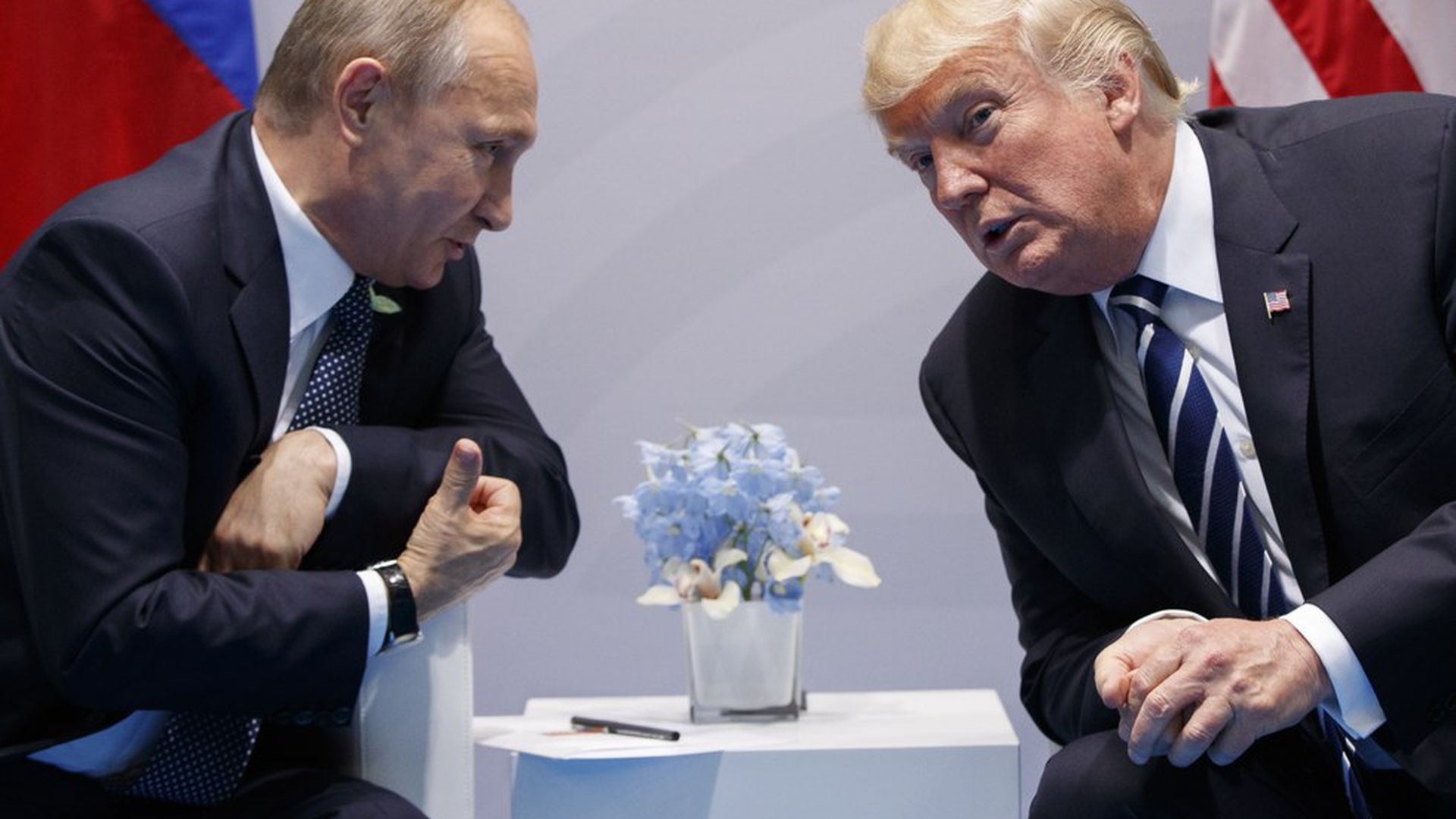Trump's other Russian dilemma
Add Axios as your preferred source to
see more of our stories on Google.

Evan Vucci / AP
The White House is racing to stop Congress from sending a Russia sanctions bill to the President's desk that would tie his hands in his negotiations with Putin, and potentially create the biggest political humiliation of his presidency.
In meetings in secure rooms, administration officials are quietly making the case to Republican members that the sanctions bill they rushed through the Senate on a 97-2 vote needs waivers to give Trump the flexibility to negotiate with Putin.
Administration officials believe the longer the bill gets delayed, the better their chances of convincing members that the bill is bad for diplomacy and bad for American companies — especially in the energy sector — who would be punished for doing international business with Russian companies.
Marc Short, whose White House legislative affairs team is working to amend the bill, says, "We support the sanctions on Iran and Russia; however, this bill is so poorly written that neither Republican nor Democratic administrations would be comfortable with the current draft because it greatly hampers the executive branch's diplomatic efforts."
- Behind-the-scenes: Paul Ryan and House Foreign Affairs Committee chair Ed Royce want the bill passed fast, and in its tough current form. Both men are Russia hawks, and unlikely to insert waivers into the legislation just to make the White House happy. They will, however, take seriously the concerns of a range of U.S. companies, from Exxon to Boeing, who believe the current bill disadvantages American businesses.
- GOP leadership isn't entirely on the same page. White House officials are still hopeful because they've found House Majority Leader Kevin McCarthy and John Cornyn in the Senate more open to their requests than other leaders, including Ryan.
- The nightmare scenario for the White House: Trump is forced to either sign the bill, which would make it impossible to establish a broader cooperative relationship with Putin, or veto the bill and risk a two-thirds majority in Congress overriding his wishes.
Administration officials are acutely aware of the political pickle this puts them in. "He can't veto Russia sanctions," one told me. "Are you f---ing kidding me? Your first veto of the administration is to protect Russia?"
